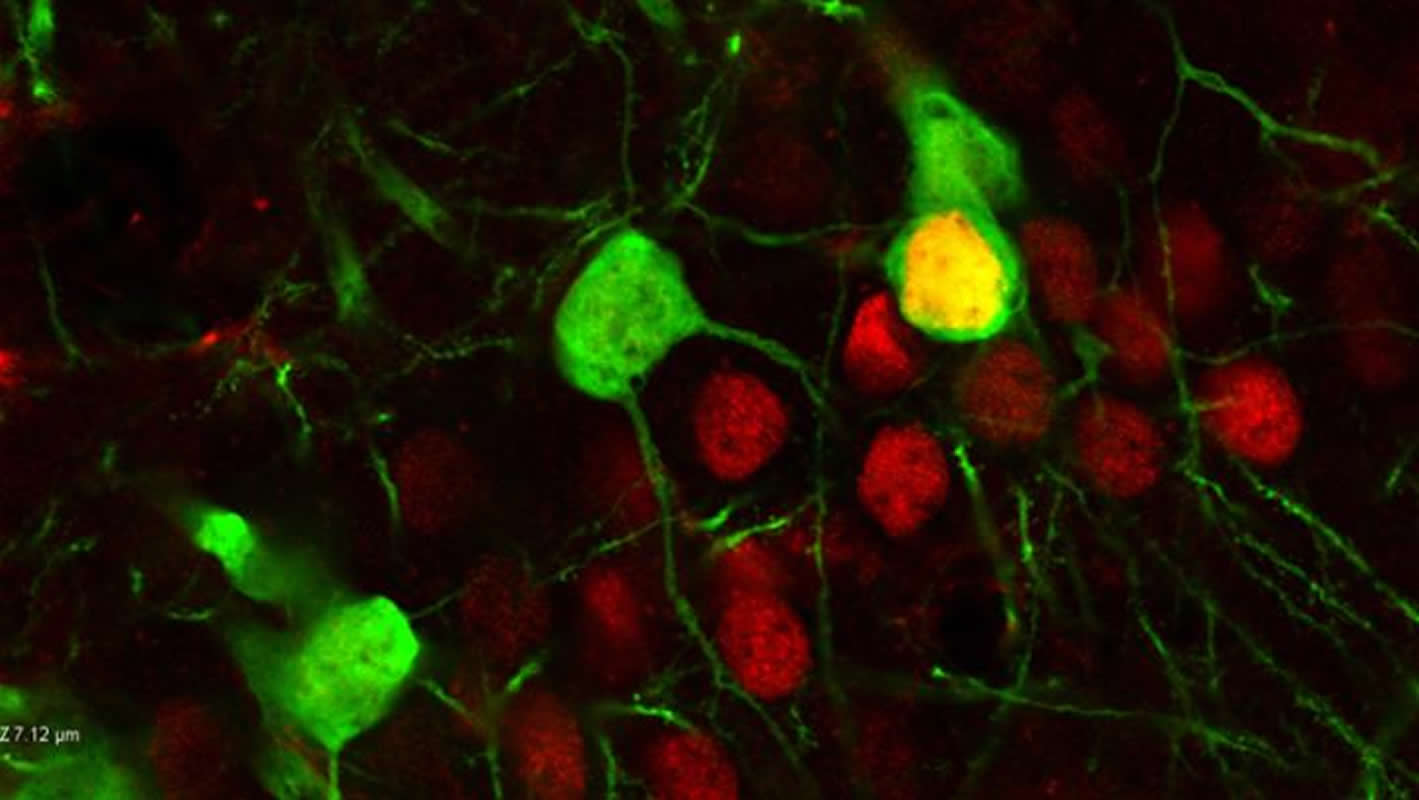Summary: Chronic cocaine use alters the epigenetic profile of the FosB gene in the hippocampus. These alterations are required for cocaine-dependent gene expression and cocaine environment associations. Modification of hippocampal FosB results in a condition critical for cocaine-related learning.
Source: SfN
Chronic cocaine use changes gene expression in the hippocampus, according to research in mice recently published in Journal of Neuroscience.
Chronic drug users learn to associate the drug-taking environment with the drug itself, reinforcing memories that contribute to addiction. These memories are thought to be created by changes in gene expression in the hippocampus and potentially involve the gene FosB, but the exact mechanism is unknown.
A.J. Robinson and colleagues at Michigan State University examined how cocaine exposure affected expression of the FosB gene in the hippocampus. Mice that were administered cocaine daily showed increased expression of FosB compared to mice that received saline. Chronic cocaine use caused epigenetic modification of the gene, leading it to becoming more active. Additionally, when the scientists blocked the changes made to FosB, the mice were unable to form associations between cocaine and the environment where they received it, implicating epigenetic regulation of the gene in drug memory formation.

These results offer new insights in the molecular changes that take place in the hippocampus during chronic cocaine use. Further research in this area could lead to the development of addiction therapies.
Source:
SfN
Media Contacts:
Calli McMurray – SfN
Image Source:
The image is credited to Gajewski et al., JNeurosci 2019.
Original Research: Closed access
“Epigenetic Regulation of Hippocampal FosB Expression Controls Behavioral Responses to Cocaine”. Paula A. Gajewski, Andrew L. Eagle, Elizabeth S. Williams, Claire E. Manning, Haley Lynch, Colin McCornack, Ian Maze, Elizabeth A. Heller and A.J. Robison.
Cortex. doi:10.1523/JNEUROSCI.0800-19.2019
Abstract
Epigenetic Regulation of Hippocampal FosB Expression Controls Behavioral Responses to Cocaine
Drug addiction results in part from maladaptive learning, including the formation of strong associations between the drug and the circumstances of consumption. However, drug-induced changes in gene expression underlying the saliency of these associations remain understudied. Consolidation of explicit memories occurs within the hippocampus, and we have shown that spatial learning induces expression of the transcription factor ΔFosB in hippocampus and that this induction is critical for learning. Drugs of abuse also upregulate ΔFosB in hippocampus, but the mechanism of its induction by cocaine and its role in hippocampus-dependent cocaine responses is unknown. We investigated differences in mouse dorsal and ventral hippocampal ΔFosB expression in response to chronic cocaine, as these regions appear to regulate distinct cocaine-related behaviors. We found that cocaine-mediated induction of ΔFosB was subregion-specific, and that ΔFosB transcriptional activity in both the dorsal and ventral hippocampus is necessary for cocaine conditioned place preference. Further, we characterize changes in histone modifications at the FosB promoter in hippocampus in response to chronic cocaine and found that locus-specific epigenetic modification is essential for FosB induction and multiple hippocampus-dependent behaviors, including cocaine place preference. Collectively, these findings suggest that exposure to cocaine induces histone modification at the hippocampal FosB gene promoter to cause ΔFosB induction critical for cocaine-related learning.
Significance Statement
Although cocaine addiction is driven in part by the formation of indelible associations between the drug and the environment, paraphernalia, and circumstances of use, and although this type of associative learning is dependent upon changes in gene expression in a brain region called the hippocampus, the mechanisms by which cocaine alters hippocampal gene expression to drive formation of these associations is poorly understood. Here, we demonstrate that chronic cocaine engages locus-specific changes in the epigenetic profile of the FosB gene in the hippocampus, and that these alterations are required for cocaine-dependent gene expression and cocaine-environment associations. This work provides novel insight into addiction etiology and potential inroads for therapeutic intervention in cocaine addiction.






